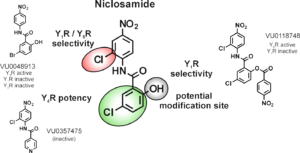The Public Library of Science: Openness and Integrity

With 17 years of progress behind them, the Public Library of Science (PLOS), continues to prove that it is possible to change the nature of scholarly publishing practices for the better. PLOS publishes highly regarded, peer-reviewed journals. Its business model continues to flourish with openly licensed content, a host of open practices, and innovative solutions for scientific communication.
Content in PLOS is freely available for the public to distribute, reuse and remix providing the opportunity to teach and research openly and freely. Easy features for downloading, printing and sharing are provided. Figures within articles are even downloadable to power point slides. Just be sure to provide appropriate attribution.
Take a look at a few PLOS journals:
- PLOS ONE
- PLOS Medicine
- PLOS Biology
- PLOS Computational Biology
- PLOS Pathogens
- PLOS Genetics
- PLOS Neglected Tropical Diseases
PLOS isn’t just concerned with providing open content. PLOS is committed to improving the nature and process of scientific communication and advocating for open across the scholarly community. Take a look at some of PLOS’ challenges and progress here.
PLOS states:
Open is no longer just about free and unrestricted access to research, it’s also about open data, transparency in peer review and an open approach to science assessment.
Open is a mindset that represents the best scientific values. One that focuses on bringing scientists together, to share work as rapidly and as widely as possible, to advance science faster and to benefit society as a whole.
PLOS provides some tools to help improve communication and openness. Some innovations in this area include the The PLOS Blogs Network and PLOS communities such as PLOS Neuro, PLOS Synbio, PLOS Ecology, PLOS Paleo, and PLOS ECR Community.
With its commitment to open, PLOS content provides the opportunity to teach with open practices. If you need access to open articles, open data, or other open content for your course, PLOS may be a viable option for you. If you don’t see what you need in PLOS, hundreds of open repositories and other options for affordable content exists.
Learn more about open content and open practices on the GSU Library’s Open Education Guide. Or, contact Denise Dimsdale, Affordable Learning Georgia Library Coordinator, at the GSU Library. The GSU Library is happy to assist instructors with locating open educational resources, open data, library resources, and other course content that provide affordable options for students and pedagogical flexibility for instructors.